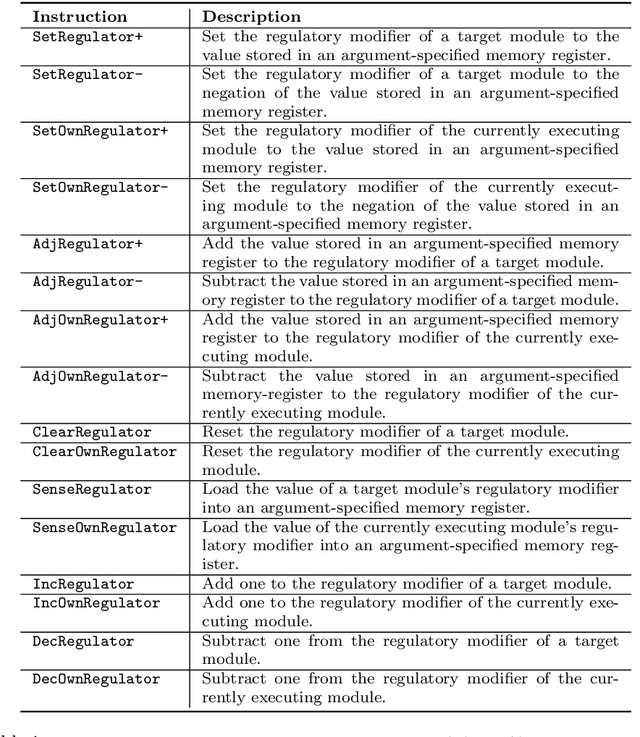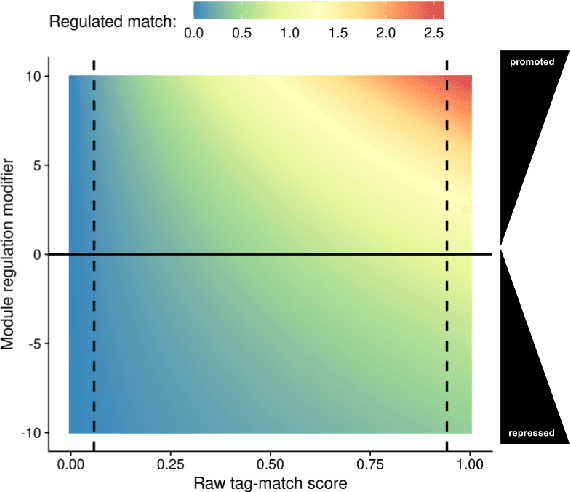Tag-based Genetic Regulation for Genetic Programming
Paper and Code
Dec 23, 2020



We introduce and experimentally demonstrate tag-based genetic regulation, a new genetic programming (GP) technique that allows evolving programs to dynamically adjust which code modules to express. Tags are evolvable labels that provide a flexible mechanism for referring to code modules. Tag-based genetic regulation extends existing tag-based naming schemes to allow programs to "promote" and "repress" code modules. This extension allows evolution to structure a program as a gene regulatory network where program modules are regulated based on instruction executions. We demonstrate the functionality of tag-based regulation on a range of program synthesis problems. We find that tag-based regulation improves problem-solving performance on context-dependent problems; that is, problems where programs must adjust how they respond to current inputs based on prior inputs (i.e., current context). We also observe that our implementation of tag-based genetic regulation can impede adaptive evolution when expected outputs are not context-dependent (i.e., the correct response to a particular input remains static over time). Tag-based genetic regulation broadens our repertoire of techniques for evolving more dynamic genetic programs and can easily be incorporated into existing tag-enabled GP systems.
 Add to Chrome
Add to Chrome Add to Firefox
Add to Firefox Add to Edge
Add to Edge